

Backbone Landscape Partner (BBLP) is an established non-profit organization that works on landscape, social forestry projects, and other agrarian issues.
BBLP’s primary responsibility is to manage Bamboo Village, foster the Champion(s), and support them in developing Bamboo Village by providing three pillars: Landscape Coordinator, Village Facilitator, and Technical Facilitator.
A BBLP could propose a maximum of 3 Bamboo Villages in one round, with one Champion in each Bamboo Village.
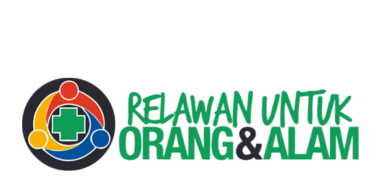
ROA stands for Relawan Untuk Orang dan Alam (Volunteers for People and Nature), and for the past 17 years, it has been one of the organizations and civil society initiatives aiming to work and serve the efforts of humanitarian and sustainable environmental work. Specifically, in the areas of Disaster Risk Reduction and Mitigation; Strengthening of Sustainable Economy and Markets; and Forestry and Environment.

Leuser Conservation Forum (Forum Konservasi Leuser – FKL) is an Aceh-based non-profit organization that aims to conserve and protect the Leuser Ecosystem in Aceh province from imminent threats. FKL works with local communities and government institutions to implement its programs, ranging from Wildlife Protection rangers protecting the Leuser Ecosystem for at least 15 days every month to increasing research and knowledge about the Leuser Ecosystem to community-based restoration programs.

Usaha Lestari Negeri (ULIN) is committed to integrating sustainable development standards across its operations to balance economic growth, environmental conservation, and community welfare. By ensuring each action contributes to sustainable development, ULIN promotes environmental protection and community empowerment, impacting both present and future generations. ULIN focuses on Sustainable Supply Chain, Landscape Management, and Social Engagement.
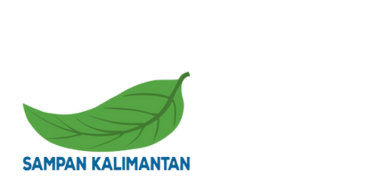
Established on June 5, 2009, SAMPAN promotes fair and sustainable forestry management in Kalimantan. The vision is to establish a fair and sustainable system for managing river basins and coastal areas, enhancing community welfare and resilience through empowerment activities. Its mission is to develop and document natural resource management systems based on fairness and sustainability, promote equitable management models, and advocate for policy changes to address and mitigate climate change.

Founded in early 2000, Yayasan Ekosistem Lestari (YEL) is a nonprofit focused on conservation, environmental education, and community development near conservation areas. In response to environmental challenges across Sumatra, YEL is dedicated to protecting the unique Leuser Ecosystem, a UNESCO World Heritage site rich in diverse flora and fauna. Notably, YEL is a founding partner of the Sumatran Orangutan Conservation Programme, which aims to increase the survivability of the critically endangered Sumatran orangutan.
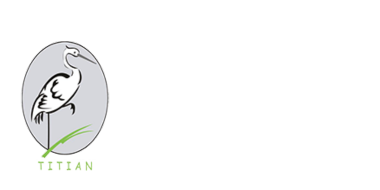
Titian Lestari Foundation is a civil society organization committed to the study and development of biological sciences, as well as raising awareness and empowering communities in natural resource management.
Established in 1997, we focus on wise, transparent, and participatory natural resource management practices to ensure the sustainability of ecosystems and community livelihoods. The main goal of the Titian Lestari Foundation is the study and development of biological sciences with a focus on raising awareness and empowering communities. Titian aims to achieve wise and equitable natural resource management to ensure its sustainability through transparent and participatory.

The Kalimantan Bumi Lestari Group (KBLi) is dedicated to sustainable environmental care on land and water.
Vision: To preserve natural habitats and promote active community and stakeholder engagement in conservation.
Mission: To conduct conservation activities on land and sea; manage forest and marine ecosystems with local stakeholder involvement; collaborate with government, private sector, and communities on equal terms; and perform research, training, and policy analysis for environmental education and program effectiveness.

The Lombok Research Center (LRC), established in 2009, is an independent institution aiming to become a premier research and development center in science and technology for natural and human resource management at national and international levels. Its mission is to conduct basic and applied research in resource management and to foster collaborations with institutions, government agencies, NGOs, and private sector entities in science and technology, focusing on research, development, planning, and technical support related to resource management.
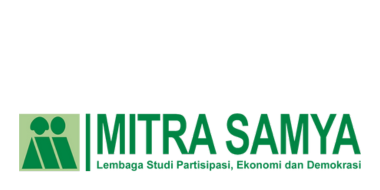
Perkumpulan Mitra Samya (Institute for Participation, Economy, and Democracy Studies) is a nonprofit organization established in 2001 by a group of researchers, academics, and community empowerment practitioners. It focuses on participatory research in social, economic, and democratization fields; strengthening human resource capacities; developing methodologies for development and natural resource management (PSDA); and enhancing communication and information media for development.
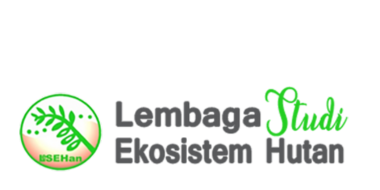
The Forest Ecosystem Studies Institute (LeSEHan) was established on January 15, 1998, to address widespread forest resource looting in the Madiun area. Its goal is to promote civil society through fair, sustainable, and democratic management of forest resources, enhancing ecosystem sustainability and benefiting environmental and community welfare. LeSEHan fosters community participation in resource management by promoting empowerment, training, education, institutional strengthening, economic initiatives, gender equality, and environmental rights and responsibilities awareness.

The Community Facilitator Network (JKPM) in Wonosobo is focused on community empowerment and community-based natural resource management. JKPM is involved in various activities, including participatory mapping and environmental conservation, particularly in the Dieng forest area.
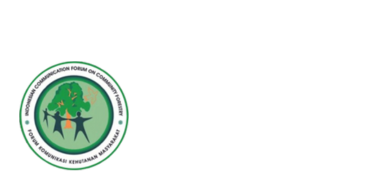
FKKM is a multi-stakeholder organization that catalyzes the advancement of the community forestry perspective in Indonesia. It supports institutional development in community forestry through information dissemination, concept development, capacity building, and policy formulation. FKKM is open to all interested parties to participate in strengthening community forestry and forest policy reform in Indonesia.

The central vision of the Tanoker Foundation is "to make Ledokombo a place of sharing and encountering people from diverse backgrounds, based on values that are child-friendly, woman-friendly, respectful of local culture, and environmentally friendly." Tanoker has institutionally grown to focus on three main areas of activity. First, it focuses on social programs supporting children and mothers; second, it develops social entrepreneurship in the fields of crafts, culinary arts, and community homestays in Ledokombo; and third, it builds financial independence by involving the youth of Ledokombo in the Tanoker Learning Village.

The Indonesian Environmental Information Center (PILI), also known as the PILI Green Network, is a non-governmental organization dedicated to enhancing the roles of various stakeholders in nature conservation and environmental initiatives. Its vision is to fortify efforts aimed at preserving Indonesia's biodiversity through effective knowledge dissemination and facilitation. The organization's mission is to offer facilitation services and a communication "shelter" for those involved in nature conservation in Indonesia and to provide up-to-date and reliable information about nature conservation efforts nationwide.

The Riau Peatland Community Network (JMGR) is an organization that manages peat swamp forest ecosystems in the Province of Riau. Established in 2010, JMGR aims to support the people's sovereignty in managing sustainable peat ecosystems and enhance community productivity. JMGR also plays a role in public policy advocacy, environmental conservation, and the development of productive business units that align with peat resource preservation. The organization frequently collaborates with the government and stakeholders to support peat restoration policies and climate change mitigation.
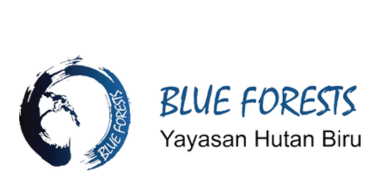
Blue Forests began to work in 2000 in Indonesia. Originally, it was named Yayasan Akar Rumput Laut, then it changed to Mangrove Action Project – Indonesia before the establishment of Yayasan Hutan Biru (Blue Forests) in 2011. Blue Forest creates collaboration to examine how land and water usage and cultural practices affect the watersheds and vice versa. Blue Forests encourages learners to be involved in the complex, real-world concerns that extend across traditional boundaries.

SEAD stands for Stewards of Environmentally-Aware Development. SEAD is an environmentally focused company specializing in using bamboo as a sustainable solution for the built environment, land restoration, and community empowerment. SEAD PLANT is a bamboo supply chain facilitator focused on forest-community empowerment and bamboo solutions for regenerating degraded lands. SEAD BUILD is a material, design, and build specialist in bamboo applications in the built environment to accelerate it towards a better sustainable future.

Bamboo Genie was founded to address some of the world’s most critical issues, such as climate change, energy, and soil health. Their mission is to support farmers in India by linking them with industry and helping reduce the carbon footprint to preserve the planet, thereby passing this legacy to future generations. Bamboo Genie aims to unlock the potential of bamboo through a robust ecosystem powered by technology, sustained by captive plantations, and led by top-tier processing. They aim to transform bamboo into a viable, eco-friendly alternative to fossil fuels, tackling significant environmental and social challenges.

Green Foundation Nepal is a distinguished non-profit Social Entrepreneurship organization that has been steadfastly serving communities since its establishment in 2012. With a visionary outlook aimed at fostering a future characterized by Wealth, Environmental Health, and Societal Contentment, the organization conceives a collective of impassioned social and development activities. Our overarching mission is to champion the sustainable management of vital natural resources such as forests, land, water, and agriculture.

The Enga Enda Anda Association is a significant initiative launched in Wabag, Papua New Guinea. "Enga Enda Anda" translates to "Enga Women's House of Meeting." This association aims to highlight women's potential to contribute equally to nation-building. Additionally, there is the Enga Take Anda, which means "House of Traditional Knowledge." This center focuses on preserving and sharing traditional wisdom to help the Enga people understand recent changes and decide what cultural aspects to maintain or adapt.
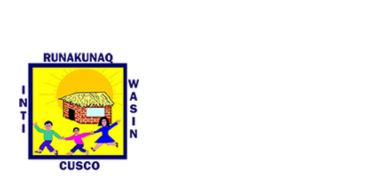
A non-profit civil association made up of an interdisciplinary group of professionals with the mission of contributing to the integral development of children, adolescents, and young people with different abilities who are at risk, abandoned, and victims of domestic violence for whom we promote their family integration, the improvement of their quality of life, the conservation of biodiversity and their leading participation in the community.
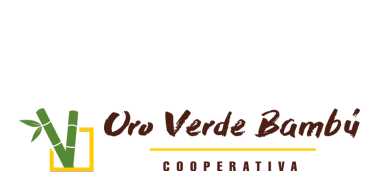
The Cooperativa Oro Verde Bambú is involved in bamboo cultivation and production. This cooperative, based in Tlamaya Grande, Mexico, manages a bamboo forest with nine different varieties of bamboo. The project began in June 2013 by planting 12,000 bamboo seedlings, including native and international species. Oroverdebambú offers an organizational model based on alternative education, with topics of collective interest: NATURE, WORK AND SOLIDARITY ECONOMY, SOCIAL SECURITY, AND HUMAN RIGHTS.

Envirotech Bamboo Limited is a notable enterprise based in Ghana. It specializes in the production of bamboo bicycles. The company harvests bamboo from its farms and handcrafts each bike, focusing on sustainable practices. The company also emphasizes empowering young women by providing them with training and employment opportunities. Envirotech Bamboo Limited manufactures various bamboo products, establishes bamboo plantations, and offers training and technical advice. Their efforts contribute to energy-efficient processing and zero-waste practices.
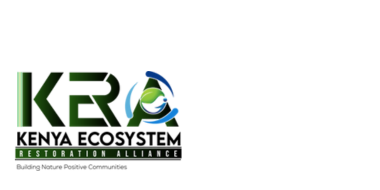
The Ecosystem Restoration Alliance of Kenya (KERA) is an Indigenous, youth-led, and values-driven national NGO focusing on ecosystem restoration, bringing Kenya’s deforested and degraded landscapes back to life. This initiative aims to restore biodiversity, revitalize vulnerable local communities, and contribute to climate change mitigation. KERA has 57 community-based Youth Serving Organizations (YSOs) as its affiliate partners nationwide. The mission of KERA is to engage communities in the restoration of biodiverse ecosystems through education, research, and practical restoration efforts.
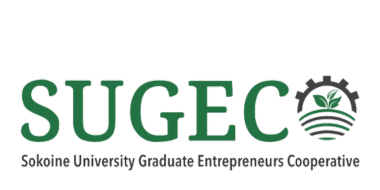
With over 1,000 members throughout Tanzania, SUGECO engages in various agribusiness entrepreneurial activities. These include training in entrepreneurship, business ecosystem, and network development, offering business incubation services, and facilitating access to capital, land, and technology. The main goal of SUGECO is to influence the mindset of youth, communities, and graduates from higher learning institutions in support of enterprise development for self-employment, agribusiness development, job creation, community development, and economic prosperity.